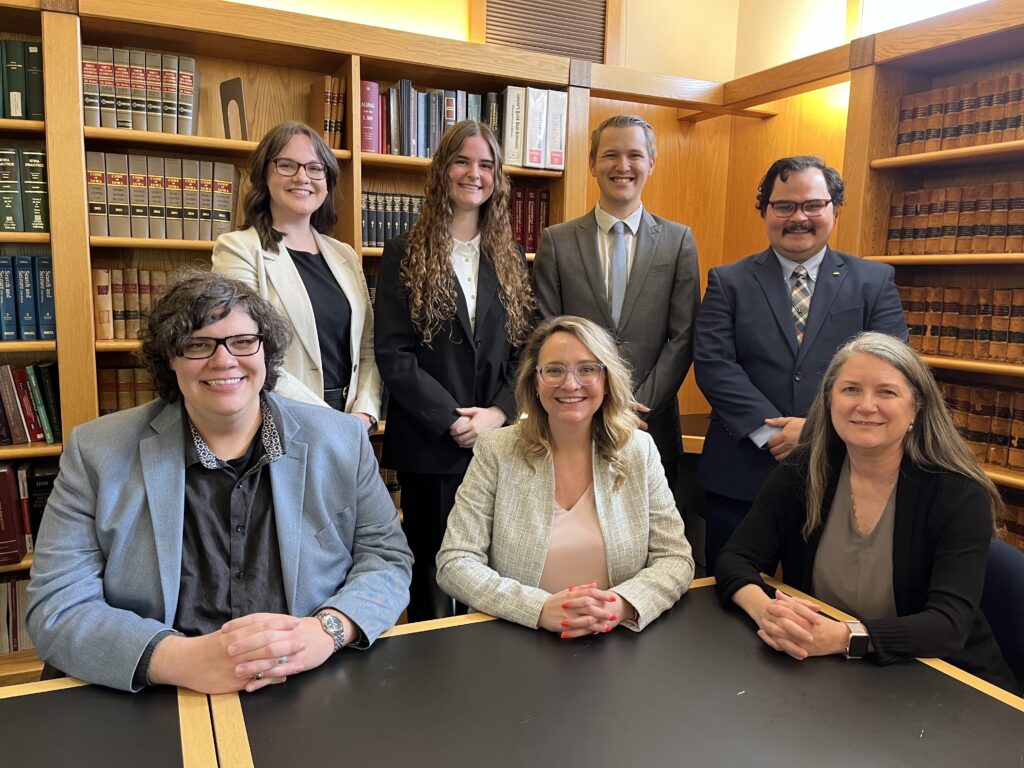
Drake University Law School’s Legislative Practice Center (LPC) was awarded a subgrant from the Legislative Analysis and Public Policy Association (LAPPA) to develop a model state drug law addressing involuntary commitment for substance use disorders. The subgrant is part of a grant to LAPPA from the Office of National Drug Control Policy, Executive Office of the President, to work with law schools in developing a model law on a subject determined by ONDCP. ONDCP and LAPPA have developed several model state drug laws that serve as a resource for states in developing effective substance use disorder statutes.
Julie Smith, director, and Sydney Gangestad, assistant director of the LPC, serve as leaders of the project. Their work is supported by Peter Larsen, LW’19, secondary investigator, and four LPC student interns, now 2024 graduates: J.T. Harris, Ami Penquite, Jacob Schrader, and Emma Terrell.
The team researched existing laws in all fifty states and the District of Columbia and drafted a model law addressing involuntary commitment. They will submit the draft to LAPPA in June for review by subject-matter experts across the nation.
“I was thrilled to play a part in this in this important work through the grant,” said Jacob Schrader. “The opportunities students have through the Legislative Practice Center makes Drake Law unique.”
“It is an honor to work on a project that will potentially improve the health and lives of people throughout the country,” said Sydney Gangestad. “Working with this team on such an important issue is incredibly gratifying. The students have been very engaged, and we are really proud of all they have accomplished.”
This year marks Julie Smith’s last as the director of the LPC. She will retire at the end of June. Gangestad will assume the role of director effective July 1. This project served as Smith’s bittersweet ultimate contribution to Drake Law School and the LPC.
“This has been such a great way to end my career,” said Smith. “It is important for students to talk about policy and put law together, because it impacts everybody. We are excited that this could potentially be something that states would adopt.”

